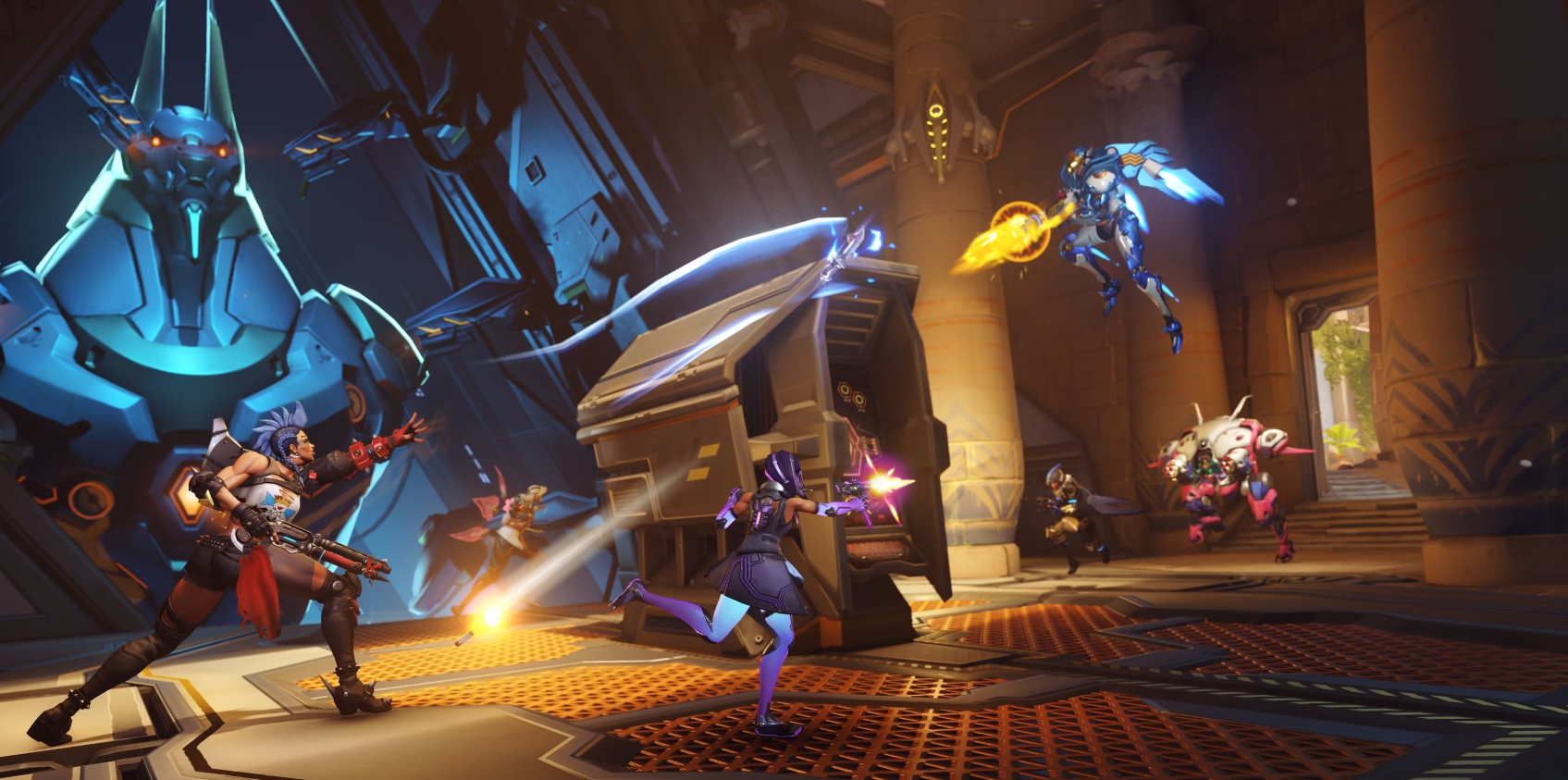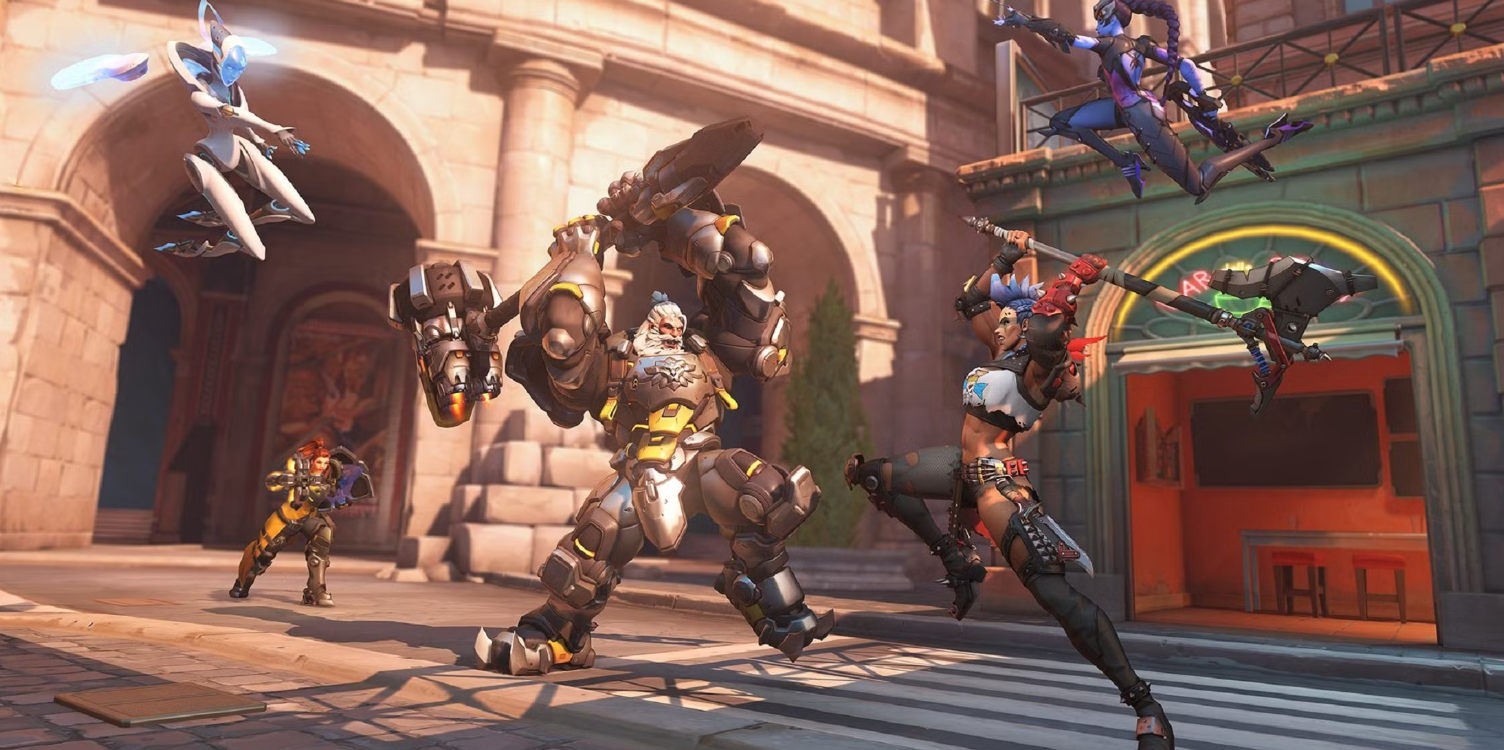Insider Leaks Exciting Developments for Devoted Blizzard Gamers

Blizzard has assembled a brand-new team focused on crafting AA-level games based on the company’s beloved intellectual properties. This latest Blizzard initiative was apparently kickstarted at the request of Microsoft, according to a report from a renowned industry insider. This move signals an exciting new direction for the renowned game studio. Rather than solely concentrating on blockbuster titles, Blizzard is now dedicating resources to explore their existing franchises through a different lens – one that could potentially deliver more intimate, experimental gameplay experiences for their devoted fan base.
The insider’s revelation has undoubtedly piqued the interest of Blizzard enthusiasts eager to see fresh interpretations of their favorite characters and worlds. This newfound AA game development focus could open the door to a greater diversity of Blizzard content in the years ahead.
Table of Contents
Envisioning the Future: How Microsoft’s Activision Blizzard Acquisition Could Reshape Gaming
After navigating a maze of regulatory hurdles, Microsoft’s highly anticipated acquisition of Activision Blizzard was finally completed in October 2023 for an eye-watering $68.7 billion. This landmark deal – the largest of its kind ever seen in the technology industry, let alone gaming – ushered in a new era for the storied Activision Blizzard brand. One of the immediate changes was the departure of long-serving CEO Bobby Kotick, who stepped down from his position in December. Rather than appointing a direct successor, Activision Blizzard’s senior leadership team now reports directly to Matt Booty, Microsoft’s president of game content and studios. This shift in oversight signals Microsoft’s intention to take a more hands-on approach in shaping the future direction of the publishing juggernaut. Beyond this change at the top, the day-to-day operations of Activision Blizzard have largely remained unchanged in the immediate aftermath of the blockbuster acquisition. The gaming giant’s vast portfolio of beloved franchises, including the likes of Call of Duty, Overwatch, Diablo, and World of Warcraft, continue to churn out content for their passionate communities of players. Development studios such as Treyarch, Infinity Ward, and Blizzard Entertainment maintain their storied legacies, albeit now under the guidance of their new parent company.
While the full implications of Microsoft’s ownership are still unfolding, the gaming world waits with bated breath to see how this historic deal will shape the future of Activision Blizzard and the industry as a whole. Already, speculation is rife about potential changes to business models, content roadmaps, and platform exclusivity arrangements. Will Microsoft leverage its Azure cloud infrastructure and Game Pass subscription service to redefine how Activision Blizzard’s titles are experienced and monetized? And how will this consolidation of power impact the competitive landscape, with rivals like Sony and Nintendo forced to adjust their own strategies in response?
One area where the Microsoft-Activision Blizzard merger is expected to have a tangible impact is the burgeoning world of esports. Activision Blizzard has long been a dominant force in the competitive gaming scene, with blockbuster franchises like Call of Duty and Overwatch boasting thriving professional leagues. With the financial and technological resources of Microsoft now at their disposal, industry observers predict that Activision Blizzard’s esports initiatives will reach new heights of production value, viewership, and player investment. Moreover, the combination of Activision Blizzard’s iconic IP and Microsoft’s cloud computing expertise could pave the way for innovative new gaming experiences. Imagine a future where Diablo or Warcraft are seamlessly integrated into Microsoft’s ecosystem, allowing for cross-platform play, cloud streaming, and deeper social features powered by Xbox Live and Discord. The potential synergies between the two companies are vast, and could fundamentally reshape the way millions of gamers engage with their favorite franchises.
Of course, not everyone is convinced that this merger is an unequivocal win for the industry. Concerns have been raised about the concentration of power in the hands of a small number of mega-publishers, and the implications this could have for developer autonomy, consumer choice, and healthy market competition. Regulatory bodies around the world will undoubtedly scrutinize the deal’s long-term effects, especially with regards to potential antitrust violations. Nevertheless, the sheer scale and ambition of the Microsoft-Activision Blizzard merger has undoubtedly captured the imagination of the gaming community. For devoted fans of Blizzard’s classics or Call of Duty’s cutting-edge multiplayer, the prospect of their beloved franchises being supercharged by Microsoft’s vast resources is an enticing proposition. As the dust settles on this historic acquisition, the industry waits with eager anticipation to see what the future holds for this newly forged gaming juggernaut.
The Microsoft-Activision Blizzard Merger: Reshaping the Future of Gaming
Ten months after the groundbreaking Microsoft-Activision Blizzard merger, it appears the tech giant is taking a more hands-on approach to managing its latest acquisition. According to a new report from Windows Central’s Jez Corden, Activision Blizzard has formed a brand-new internal team tasked with tackling the development of AA game projects at Microsoft’s behest. The focus of this new group will be on leveraging Blizzard’s beloved intellectual properties, including the likes of Diablo, Overwatch, StarCraft, and Warcraft. Interestingly, the team seems to be largely comprised of staffers poached from Activision Blizzard’s subsidiary, King – the studio best known for its ubiquitous Candy Crush franchise. While the exact size of this purported AA development division is unclear, a review of publicly available LinkedIn data suggests Activision Blizzard currently has at least 99 employees who previously worked at King. Many of these individuals made the move from King to Activision Blizzard just last July. Given King’s mobile gaming expertise, this talent pool could hint at a core focus on smartphones and tablets for this new team – an area of growing interest for Microsoft as it expands its gaming ambitions beyond traditional consoles. However, the full scope of this new initiative remains to be seen. Corden reports he was only able to confirm the team’s high-level goal: to better leverage Blizzard’s legendary IP portfolio in ways that the pre-Microsoft Activision Blizzard struggled to achieve. To that end, Microsoft is said to be eager to “explore and experiment” with a variety of AA game projects. Whether these experiments result in Blizzard branching out into non-live-service experiences for the first time in ages remains an open question. But with Microsoft’s deep pockets and technological prowess now behind the iconic game maker, the gaming world is abuzz with speculation about what innovative new directions the Blizzard franchises might take.
One area where the potential impact of this merger is particularly intriguing is the burgeoning world of esports. Activision Blizzard has long been a dominant force in the competitive gaming scene, with blockbuster franchises like Call of Duty and Overwatch boasting thriving professional leagues. With the financial and technological resources of Microsoft now at their disposal, industry observers predict that Activision Blizzard’s esports initiatives will reach new heights of production value, viewership, and player investment. Moreover, the combination of Activision Blizzard’s iconic IP and Microsoft’s cloud computing expertise could pave the way for innovative new gaming experiences. Imagine a future where Diablo or Warcraft are seamlessly integrated into Microsoft’s ecosystem, allowing for cross-platform play, cloud streaming, and deeper social features powered by Xbox Live and Discord. The potential synergies between the two companies are vast, and could fundamentally reshape the way millions of gamers engage with their favorite franchises. Of course, not everyone is convinced that this merger is an unequivocal win for the industry. Concerns have been raised about the concentration of power in the hands of a small number of mega-publishers, and the implications this could have for developer autonomy, consumer choice, and healthy market competition. Regulatory bodies around the world will undoubtedly scrutinize the deal’s long-term effects, especially with regards to potential antitrust violations.
Nevertheless, the sheer scale and ambition of the Microsoft-Activision Blizzard merger has undoubtedly captured the imagination of the gaming community. For devoted fans of Blizzard’s classics or Call of Duty’s cutting-edge multiplayer, the prospect of their beloved franchises being supercharged by Microsoft’s vast resources is an enticing proposition. As the industry waits with bated breath to see what the future holds, one thing is certain: this historic acquisition has the potential to redefine the gaming landscape in ways we can scarcely imagine. Beyond the technological and business implications, there are also cultural and community-driven aspects to consider. Activision Blizzard has long been a lightning rod for controversy, ranging from high-profile workplace misconduct allegations to the divisive launch of Diablo Immortal. Under Microsoft’s stewardship, there are hopes that the company’s toxic workplace culture and predatory monetization practices will be swiftly addressed and reformed.
Likewise, the merger could present an opportunity to strengthen the ties between Activision Blizzard’s development teams and their passionate player bases. By empowering developers to focus on crafting high-quality experiences rather than chasing short-term profits, Microsoft may be able to rebuild trust and foster more meaningful, long-lasting connections between studios and communities. This, in turn, could lead to a renaissance of creativity and innovation across Activision Blizzard’s portfolio. Of course, these are just speculations based on the limited information available. The reality is that the full implications of this deal will likely take years to fully manifest. But for now, the gaming world remains captivated by the prospect of what Microsoft and Activision Blizzard can accomplish together – both in terms of technological breakthroughs and cultural shifts within the industry. As this new chapter unfolds, one thing is certain: the Microsoft-Activision Blizzard merger has the potential to be a defining moment, not just for gaming, but for the wider entertainment landscape as a whole. The road ahead may be uncertain, but the journey promises to be nothing short of transformative.




